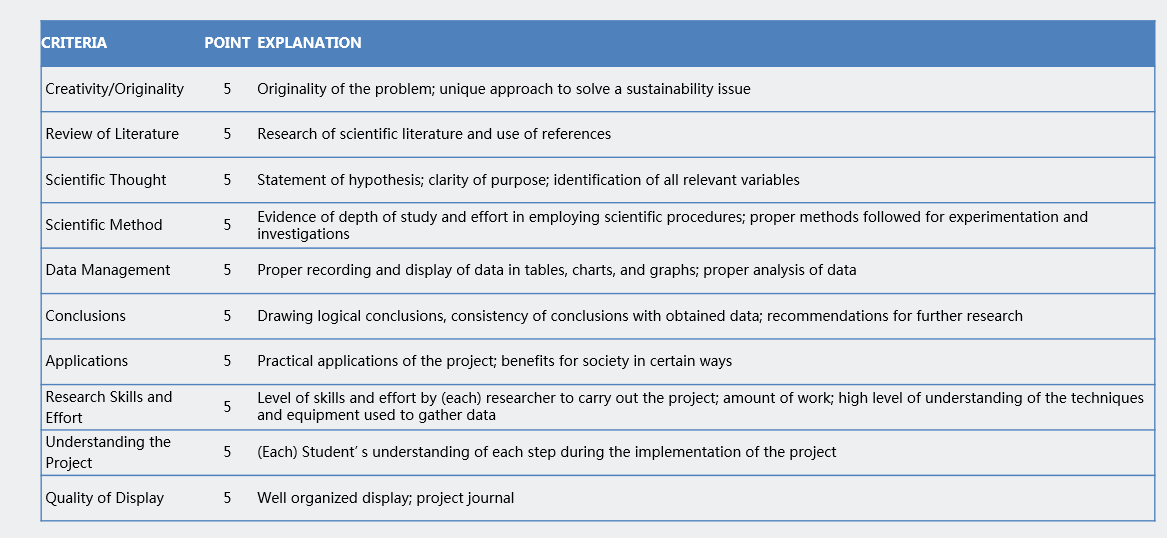Final date: January 6-7, 2018
Introduction
Invitation Letter
Dear teachers of physics, chemistry and biology,
ASDAN China will co-host the first ASDAN Sustainable Project Competition with I-SWEEEP (International Sustainable World (Energy, Engineering and Environment) Project), which will also be the first China Qualifying Round for I-SWEEEP. The top 2 winning teams will win direct qualification and be sponsored to take part in the I-SWEEEP global final in Houston, USA. We sincerely invite you and your students to join us in this enriching science opportunity and compete in this globally respected contest.
I-SWEEEP is a groundbreaking science fair competition open to high school students. It is the largest science fair event of its kind anywhere in the world. I-SWEEEP Scientific Review Committee is organized by Harmony Public Schools, a K-12 Public Charter School System from the USA. With the support of leaders in industry and higher education institutions, I-SWEEEP works with local, national, and international science fair organizations to bring top-ranking participants and projects to Houston each year. Over 2000 projects proposals of varying scientific subjects are submitted to I-SWEEEP from over 78 countries and 48 states from the USA. 400 of these are selected by the scientific advisory group of I-SWEEEP to compete in the final. Most of the projects are recommended to I-SWEEEP by big science competitions around the world. I-SWEEEP is very popular among top universities in the USA, leading to contestants having a competitive advantage when applying to science schools in top universities.
ASDAN (www.asdan.org.uk) which is short for Award Scheme Development and Accreditation Network is a UK charitable social enterprise with awarding body status and has been running for 35 years. Globally ASDAN is working with 6000 schools and 200,000 students each year. ASDAN China has cooperated with more than 200 top high schools and international high schools after starting up in China in 2011. Over 10,000 students have been involved in varying activities with ASDAN China.
The ASDAN Sustainable Project Competition promotes engineering inventions and energy efficiency/management discoveries that will nurture environmentally friendly technology concepts in secondary education. It gives students the opportunity to position themselves as the scientists and engineers of the future. It will be these individuals who have a greater understanding of global issues and the importance of technology in achieving global sustainability. They will be at the forefront of environmental research and development.
ASDAN China
I-SWEEEP Scientific Review Committee, USA
Sept. 2017
Procedure
1.Team
2 students
2. Registration
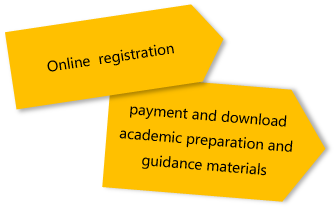
3.Training(English)

4.Decide your topic
Energy
| Renewable Energy | Bio Energy | Energy Business & Policies |
| Clean Energy Technology | Energy Efficiency | Energy Conservation |
| Non-renewable Energy-Clean & Green Advancement |
Award topic case of Energy category:
1.The cooling of Solar Panels to Increase Power Output;
2.Sap Energy from Waste Baby Diaper via brine as New Green Eletrical Energy from Waste to Wealth;
3.High Energy Density Anode
Environment Pollution & Management
| Land Management | Water Pollution/Quality | Ecosystem Management |
| Bioremediation | Air Pollution/Quality | Soil Pollution/Quality |
| Deforestation | Noise Pollution/Quality | Reduce - Reuse - Recycle |
Award topic case of Environment category:
1.Fire Fighting at Work:A simulation of Envelope Fire Fronts and Locational Fuel Treatment;
2.A Green Solution:The Use of Microalgae in Phosphate Removal During Wastewater Treatment;
3.A Novel Method for Rapid Quantification of Coliform Bacteria using Nanotechnology.
Engineering
| Bio-Engineering | Chemical Engineering | Civil Engineering & Construction Engineering |
| Mateial Science | Industrial Engineering | Electrical Engineering & Computer Engineering |
| Robotics | Thermodynamics | Mechanical Engineering |
Award topic case of Engineering category:
1.Design and Construction of a Scalable Power Electionics Module for Electric or Hybrid-Electric Vehicles;
2.Carbon fiber in musical instrument making;
3.A New Concept of Passive House Indoor Cooling.
Environment——Health & Disease Prevention
| Medicine | Immunology | Nurtrition |
| Bacteriology and Virology |
The broad category of your project should be chosen from the adjacent table,with your scientific topic being more detailed. For example,if your chosen category is renewable energy,your scientific topic could be "Improving the output power of wind turbines to increase wind farm popularity".
5. Scientific methods

6. Research paper(English)
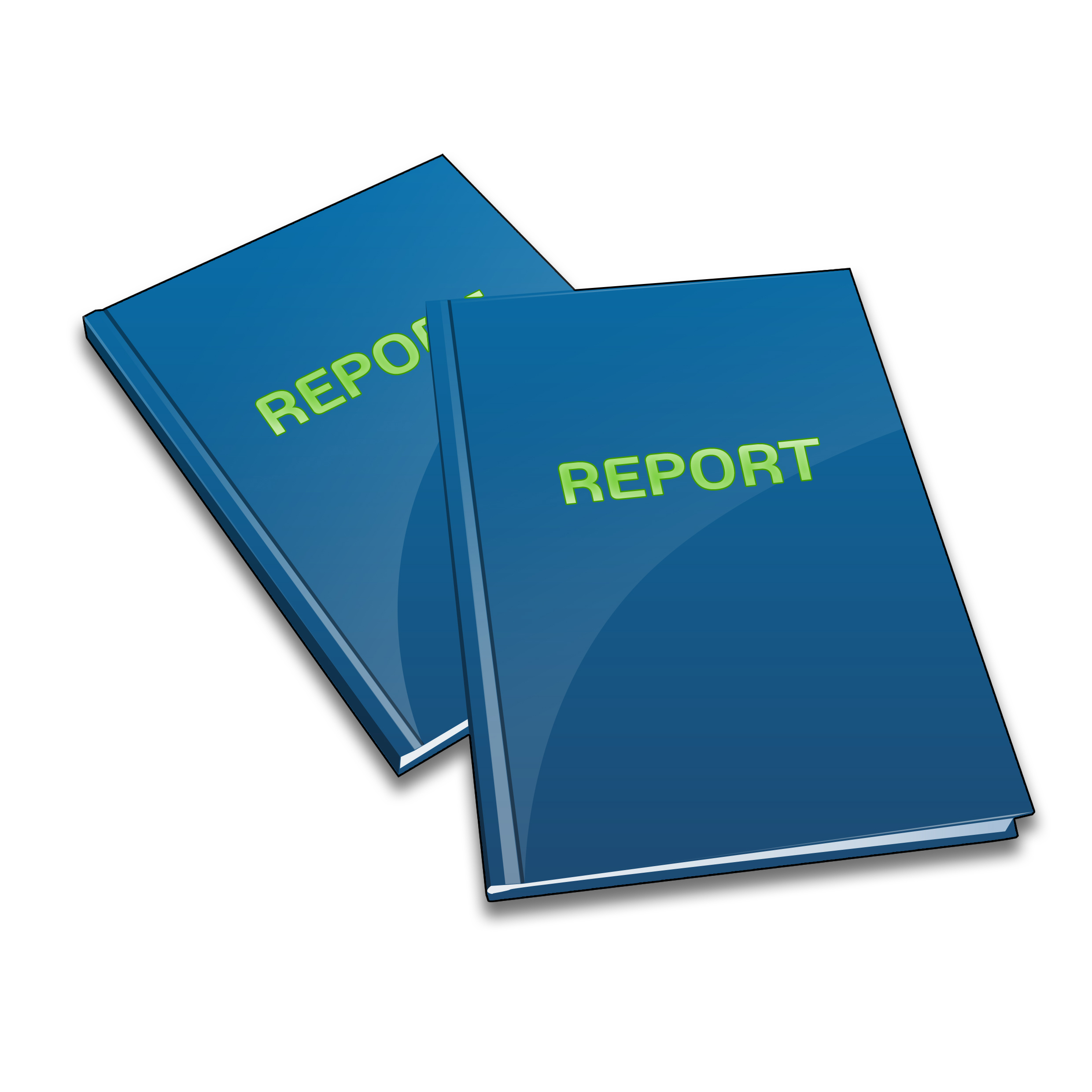
科研报告书写格式(推荐)
Contents
1. Abstract
2. Introduction
3. Materials and Methods
4. Results
5. Discussion
6. Conclusion
7. Acknowledgments
8. References/Bibliography
Judging Team
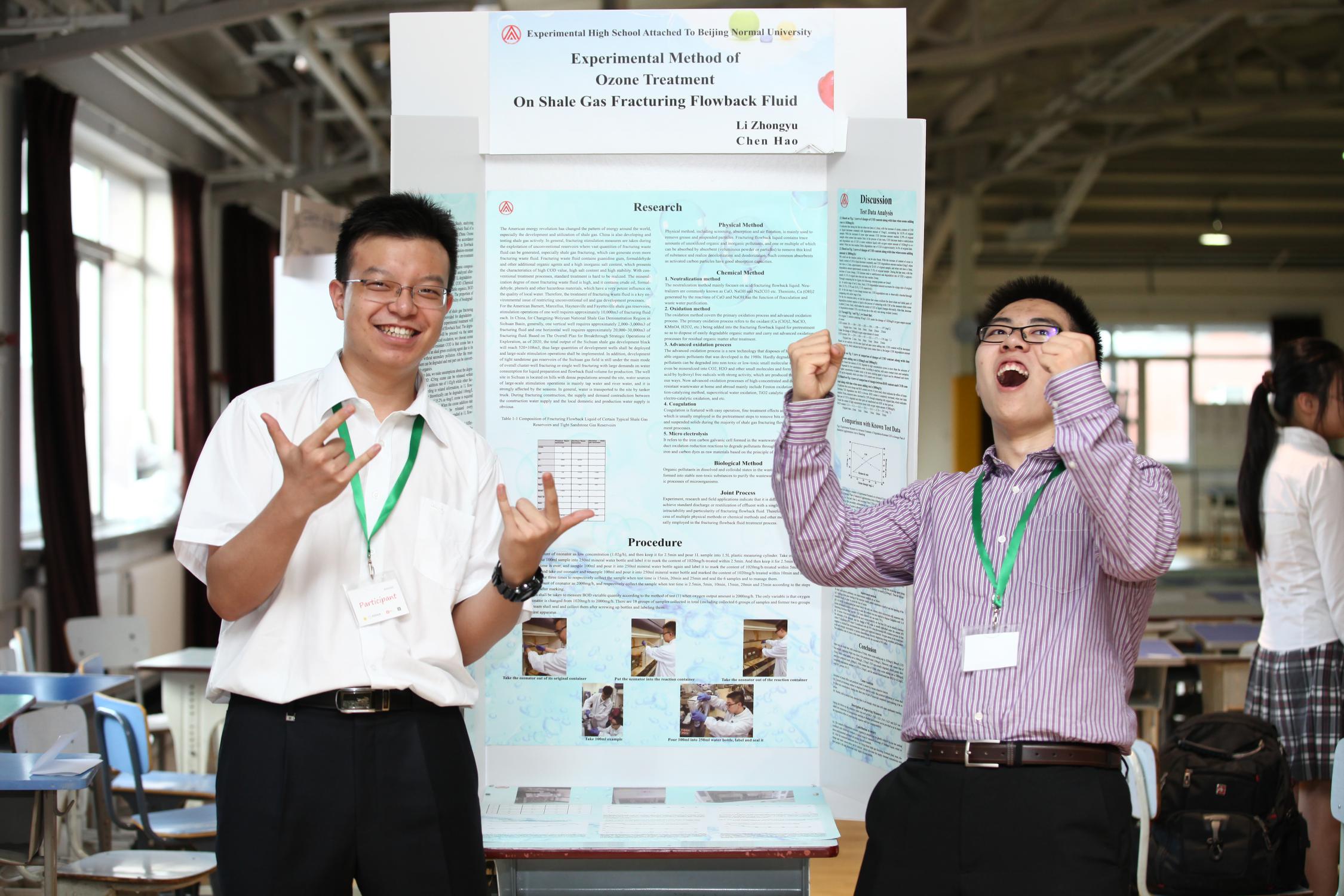
Competition Rules
Qualifying:Teams present their research results and process on a display board. (Teams can present their report, experimental data, innovation etc.) The judges will select 15 teams to compete in the final.
Final:15 teams selected from the qualifying round present their research results by giving presentation to all contestants and judges. The judging team will select the winner and runner up.
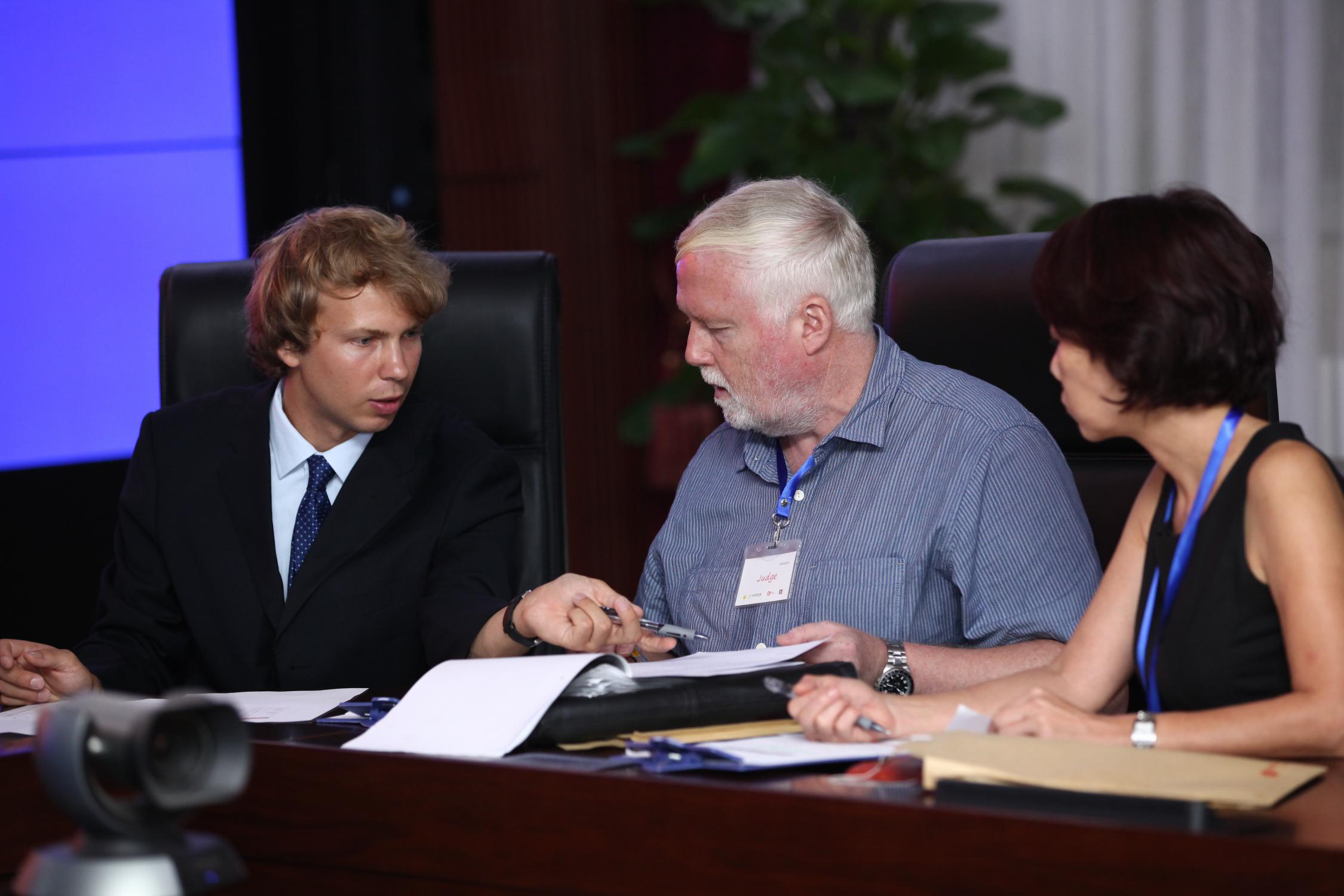
Core Judging Team
ISWEEEP judges
Science professors from top Chinese universities
Outstanding teacher in chinese high school
Awards & Sponsorship
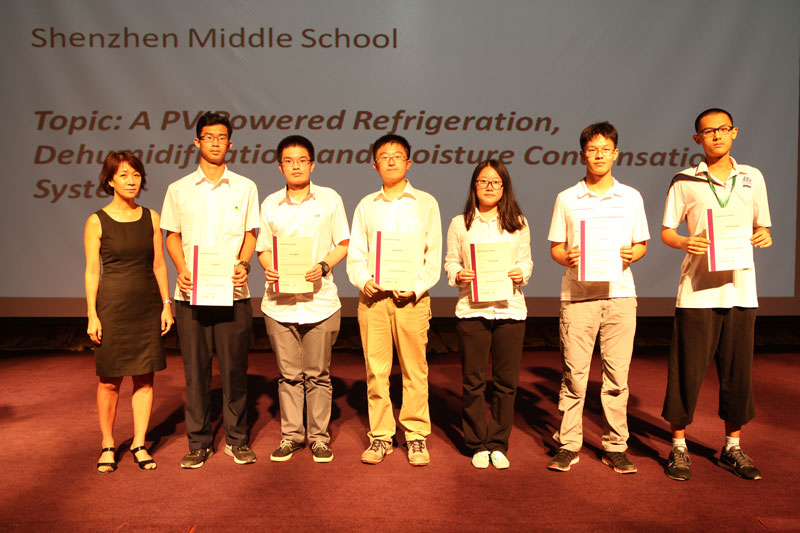
Awards
Categories Awards:
- Energy : Top 5
- Engineering: Top 5
- Environment : Top 5
Overall Awards: Top 2
Out of awarded teams, select the top 2 teams
Full Sponsorship
The top 2 teams will be awarded full sponsorship for the USA final (including 5 days of accommodation, visits, competition fee; international flight tickets and meals are not included).
Date of Global Final: April 26, 2018 - May 1
Location of Global Final: Huston, USA
Important Dates
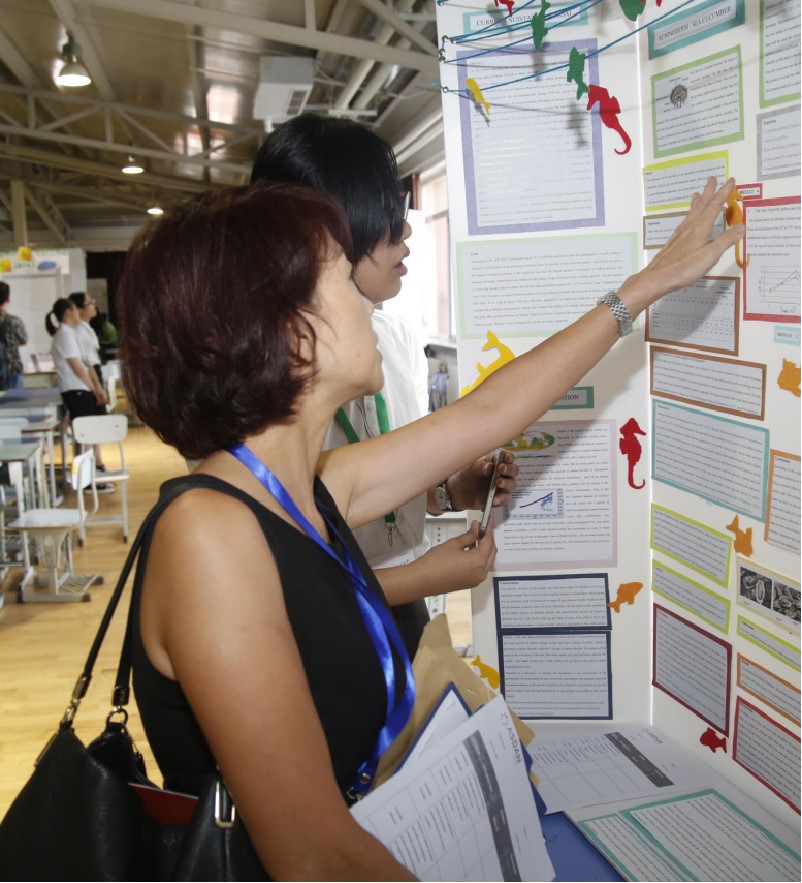
Registration, hand in essay deadline:
December 11, 2017
Report submission deadline:
December 30, 2017
Formal competition & Results announcement:
January 6 - 7, 2018
Final date:
April 26, 2018 - May 1
Judging
When Judges evaluate your project, they mostly focus on:
1. Were you creative when doing your science fair project?
- Does your research show creativity and originality?
- Did you solve the question in an original way?
- Did you construct or design new equipment?
2. Did you follow the scientific methods and procedures in your science fair project?
- Did you clearly state your problem?
- Did you use scientific literature when you do your initial research?
- Did you clearly state your variables?
- Did you use controls?
- Does your data support your conclusions?
- Do you recognize the limitations of the data / experiment?
- And did you state them in your conclusions?
- Did you make suggestions as to what further research is warranted?
3. Were you thorough in doing your science project?
- Did you carefully think out your science fair project, go about it systematically for simple science fair projects with well thought-out research following the scientific method for kids outline and observations?
- Did you complete all parts of your research experiment?
- Did you keep a project journal?
- Did you keep detailed notes in your journal?
4. What was the quality of your technical skill?
- Did you have the required equipment to obtain your data?
- Was the project performed at home, school, university laboratory?
- Where did the equipment come from? Did you build it? Did you loan it from somewhere? Did you work in a professional laboratory?
- Did you do the project yourself or did you receive help? If you received help the judges are looking for you to give credit to those individuals.
5. Did you have clarity with the details of your science project?
6. How well your project fits in with the theme of being beneficial to society will be taken into account?
